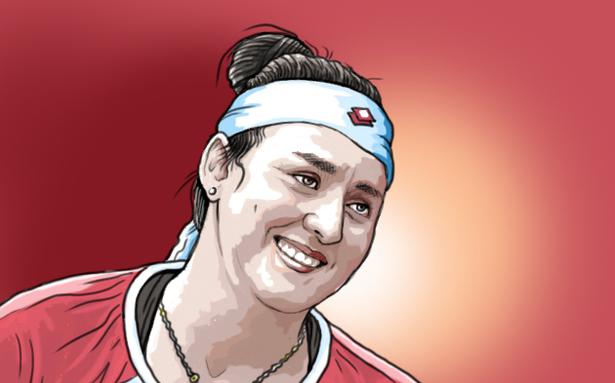The trailblazing Tunisian wants to inspire both her country and continent into becoming a tennis superpower
The trailblazing Tunisian wants to inspire both her country and continent into becoming a tennis superpower
After reaching the Wimbledon final on Thursday, Ons Jabeur was asked for her views on Boris Johnson’s resignation as British Prime Minister. The 27-year-old, in what will go down as one of the best press-conference lines ever, said with a chuckle, “I don’t really know, but I am the Minister of Happiness.”
Witty, affable and ever-smiling, Jabeur captivated the world these past two weeks, both with her tennis and personality. On Saturday, she came agonisingly close to becoming the first Arab and first African woman in the Open Era (from 1968) to win a Grand Slam title, before falling short.
It may not have ended in glory for Jabeur, but the performance capped a splendid trailblazing run. Professional tennis’s individualism doesn’t necessarily sit well with nationalism. But in developing countries, sporting stars often have outsized national identities.
Jabeur first gained prominence at home way back in 2011 when she won the junior crown at the French Open. It took her another six years to break into top-100 and a further year to reach a maiden WTA tournament final (Moscow, 2018).
But progress in the last two years has been at breakneck pace. Jabeur became the first Tunisian to make a Grand Slam quarterfinal (Australian Open, 2020) and to crack the top-50. In 2021, she won a title at Birmingham on grass and subsequently broke into the top-10, both firsts for her nation.
This year, at the Mutua Madrid Open in May, she became the first Arab player to win a WTA 1000 trophy, just a rung lower than the flagship Major events. She is now ranked No.2 in the world, below Poland’s Iga Swiatek.
On a mission
“I see myself like I’m on a mission,” Jabeur told The Guardian, ahead of Wimbledon. “I chose to inspire people and really get more and more generations here. I don’t see it as a burden; it’s a great pleasure and responsibility. It’s part of why I am playing today. And I do believe in sharing. Sharing could help me, help me as a player and help the other generations.”
The evidence of this is seemingly on the ground, back in Tunisia, where enrolment in tennis academies has reportedly grown rapidly. In a football-mad country, Jabeur has created an enduring legacy for herself, with courts being filled with “dozens of mini…
Click Here to Read the Full Original Article at The Hindu – Tennis…

